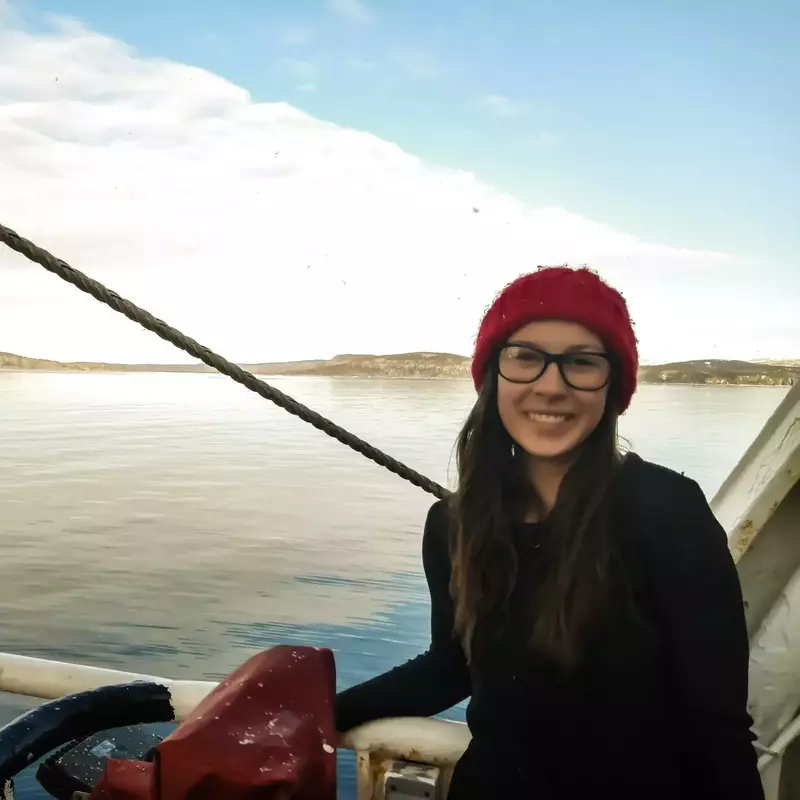What do you love most about your profession? Why did you choose this career?
I absolutely love the curious side of being a biologist, specifically experimental design and brainstorming new project ideas. I love that this often involves just watching different organisms, and how they behave or interact with others in their environment. It is amazing how much is still unknown about marine environments and how many scientific questions you can come up with while you're doing something simple like going for a hike or cleaning up an aquarium. I am excited that this career will grow and change with me.
When did you realize you wanted to work in STEM or Skilled Trades?
When I was 10 I wrote a science report on sharks and ever since then, I have been fascinated by the crazy adaptations of marine animals.
Why do we need more women in STEM and Skilled Trades?
As an early career scientist, I have felt insecure and vulnerable because of the stereotypes that come along with being a woman pursuing a career. Often I am worried people won't take me seriously or will value me less because I may have children one day. Having more women in science helps change the stigma around having a work-life balance and hopefully makes it more likely that females will have supervisors who understand and don't diminish these struggles. I personally feel very lucky to be currently supervised by a woman in science and have many female coworkers. While there are still many issues with racism and sexism in this field, I know that being able to start my career in a place where I feel safe and that nurtures my creativity has been invaluable.
How do you think the school you went to influenced your career?
Unsurprisingly, I really enjoyed invertebrate zoology, ecology and other biology classes but I was surprised by how much I liked social science courses like Medieval Literature, Mythology and Women in Canadian History. I found studying a broad range of subjects quite valuable as it has improved my communication skills and given me a better understanding of our current culture.
What does your typical workday involve? Can you work remotely? (indoors/outdoors, office/plant, travel time, teamwork/solo work)?
A wonderful thing about my job is I have lots of flexibility so my day can look quite different depending on the time of year or type of project I am currently working on. Often, I try to do two or three hours of deep creative work first thing in the morning. This includes designing new projects or working on papers. Following that, I usually focus on more task-oriented goals like lab work, experiments or collaborating with my peers. I am fortunate to have a community of scientists around me who really enjoy working together to problem-solve and share interesting ideas.


